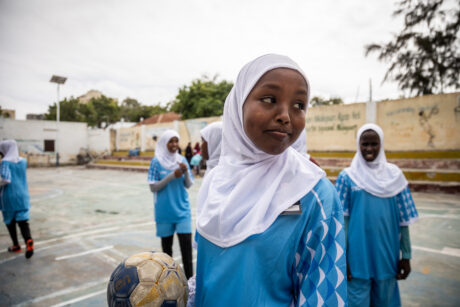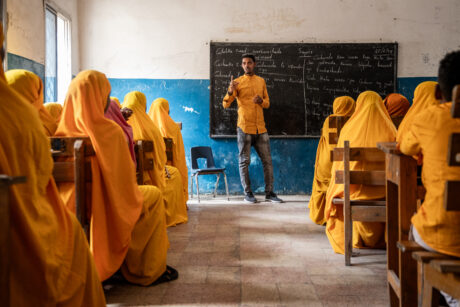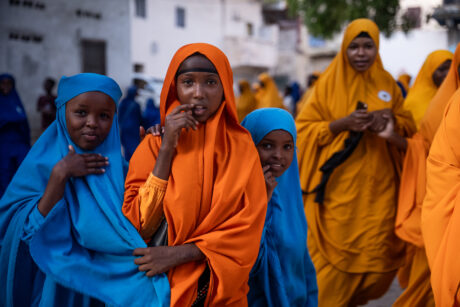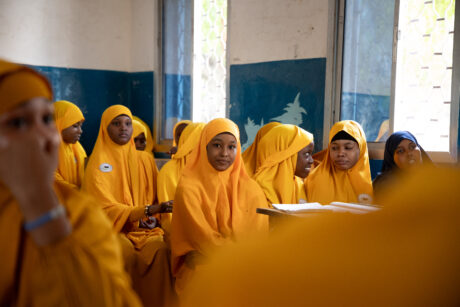The USAID Bar ama Baro wraps up an intensive, nine-day training for a cadre of teacher trainers working in Somalia’s accelerated basic education programMogadishu, SomaliaMore than 130 teacher trainers, learning-material writers and officials from Somalia’s Ministry of Education, Culture and Higher Education (MoECHE) participated in an extensive nine-day training event that marks a major milestone in the unprecedented scale-up of the country’s accelerated basic education (ABE) program.
The workshop prepares participants to share their newfound knowledge to improve the skills of an additional 3,000 teachers across the country tasked with advancing Somalia’s ABE program, which aims to provide basic education to generations of youth whose formal education has been interrupted by conflict, famine and instability.
“Ensuring that all Somali children have access to equitable, inclusive and quality education is a top priority for the Somali Government,” says MoECHE Director General Mohamed Abbi Hassan. “Through the partnership with USAID’s Bar ama Bar program, we are reaching more Somali children with quality education, which will contribute positively to the security, social and economic development of this country.”
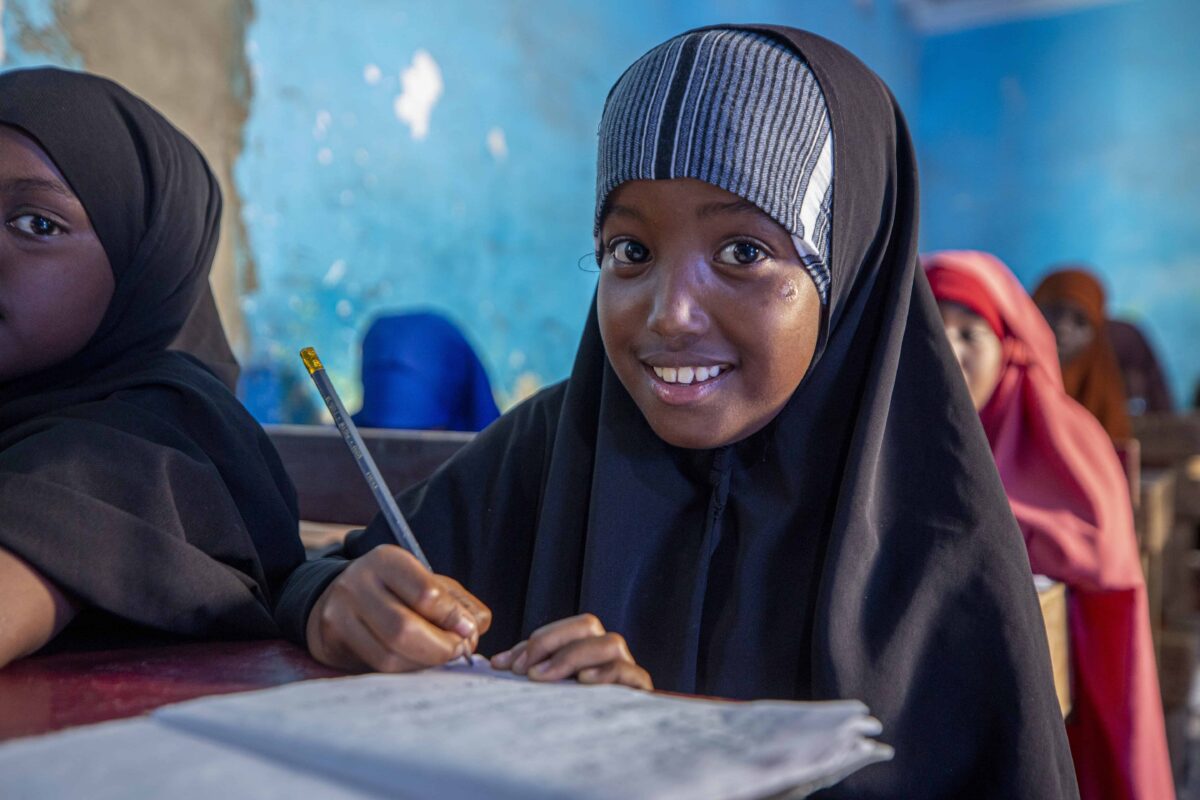
Led by a team of experts, including two lecturers from the Somali National University, and the Jubaland Teacher Training Institute, the training is a component of the U.S. Agency for International Development’s (USAID) Bar ama Baro (BAB) project, a five-year primary education program supporting the Government of Somalia in the design and delivery of comprehensive, inclusive education services.
Bar ama Baro, which means “teach or learn” in English, is implementing an ABE program to improve access and quality of education for out-of-school children ages 9 to 18 through direct implementation in the Federal Member States of South West, Jubaland, Hirshabelle and Banadir. Somalia’s ABE condenses eight years of the formal curriculum into four, covering Arabic, English, science, social studies, Somali, Tarbiyah and technology – ensuring that students can either rejoin the formal school system at Grades 2 or 4 or obtain Grade 8 level certification.
More than 100,000 students are expected to benefit from the new curriculum, teaching methods, materials and non-formal learning centers developed by BAB in cooperation with the MoECHE. This expansion follows the ABE Policy and Curriculum Framework inaugurated on April 24, 2021, and a pilot conducted with more than 40,000 students during 2022. By 2023, nearly 1 million ABE textbooks, teacher guides and supplementary reading materials will be distributed.
The nine-day workshop in Mogadishu included sessions on the condensed curriculum and how to start and manage non-formal learning centers, retain student enrolment, monitor quality and the importance of engaging parents and other community members.
Other sessions addressed research on brain-based instructional activities, technical teaching methods for working with beginning readers, participatory techniques to promote numeracy and problem-solving, identifying the needs of ABE students and working with ABE placement testing.
Bar ama Baro’s Chief of Party, Faiza Hassan, Ph.D., applauds the collaboration among the trainees, and adds: “We are very happy to be partners with the MoECHE and the Federal Member States Ministries of Education on the design, development and roll out of this national basic accelerated education program aimed to address the need of the large out-of-school population in the country. Together we will continue to rebuild Somalia’s public education system so that every child has the opportunity to learn.”
More Engaging Work Sessions
Participants said the training’s design and the incorporation of interactive work among the diverse attendees made the sessions more engaging and conducive to learning. In addition, many of the teacher trainers said the clear guidance provided during the sessions created an easy-replicate-model when they began to provide instruction to teachers around the country.
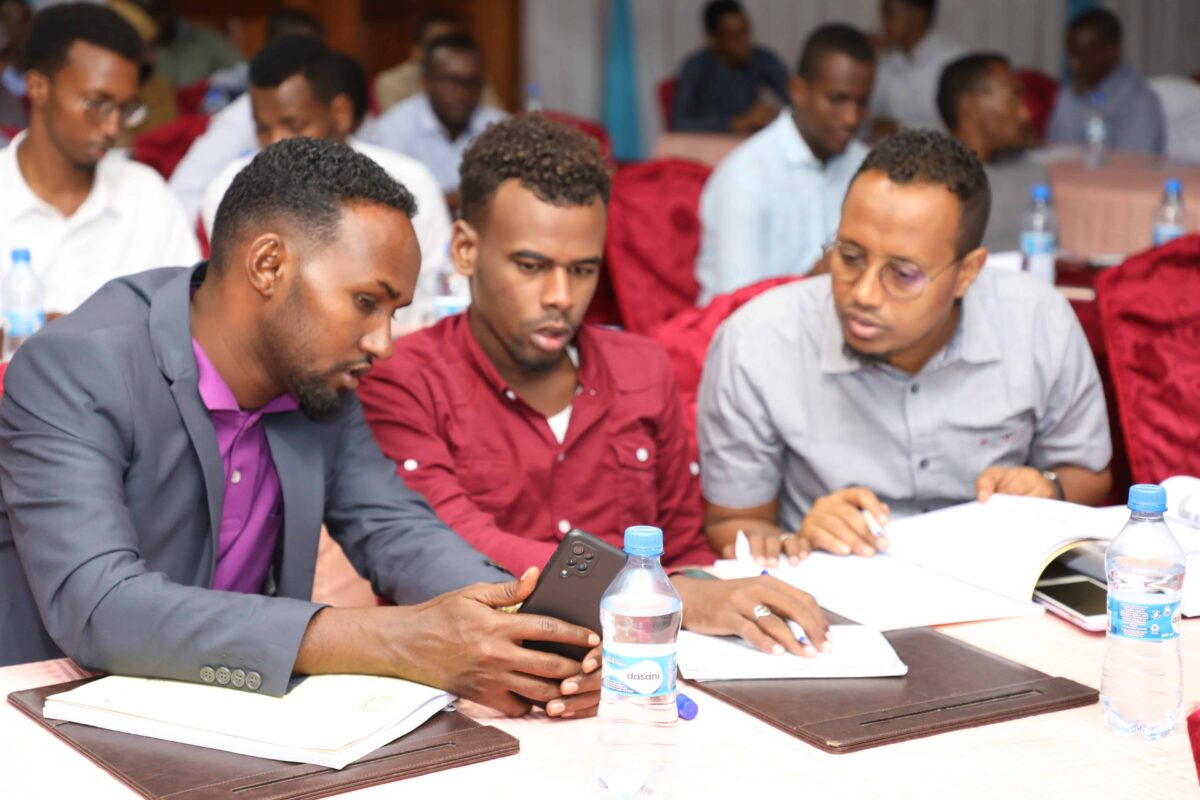
Abdirazak Sheikh Mohamed, a MoECHE teacher trainer since 2000, says the management lesson was particularly useful for him “because it offered step-by-step instruction on how to teach and manage classes.” The nine-day seminar was different from previous trainings he has participated in because they were “more interactive and practical, involving both individual and group work,” he says.
“It is easy to follow or teach,” Abdirazak says. “This well-developed and focused syllabus will help improve the quality of education in Somalia. Teachers will also benefit a lot from the techniques and the training offered.”
Ahmed Ali-Shire, a facilitator at the training, said he was impressed by the importance the new curriculum places on ABE educators. “This is important because the teacher is the biggest changemaker,” he says. “They are responsible for student retention and improving learning outcomes.”
Such an approach to the role of teachers is “more effective compared to the traditional one,” Ahmed says. The trainings improve the quality of the teacher, which can lead to improved learning outcomes and create a safe learning environment for the ABE students, he says.
“It shouldn’t be one-time program, it should be sustainable,” he adds.
Jaime Oberlander, USAID/Somalia Social Services Office Director, says of the nine-day training session and the accelerated basic education program: “The United States is proud to partner with Somalia to provide over 100,000 with opportunities to gain fundamental literacy, numeracy and life skills. Through Bar ama Baro, USAID is contributing to building teachers’ skills to meet diverse learners’ needs to help them ‘catch up’ to re-enter the formal school system or transition to vocational or livelihoods training.”
With editing and writing by Sabra Ayres in Chevy Chase, Maryland.
